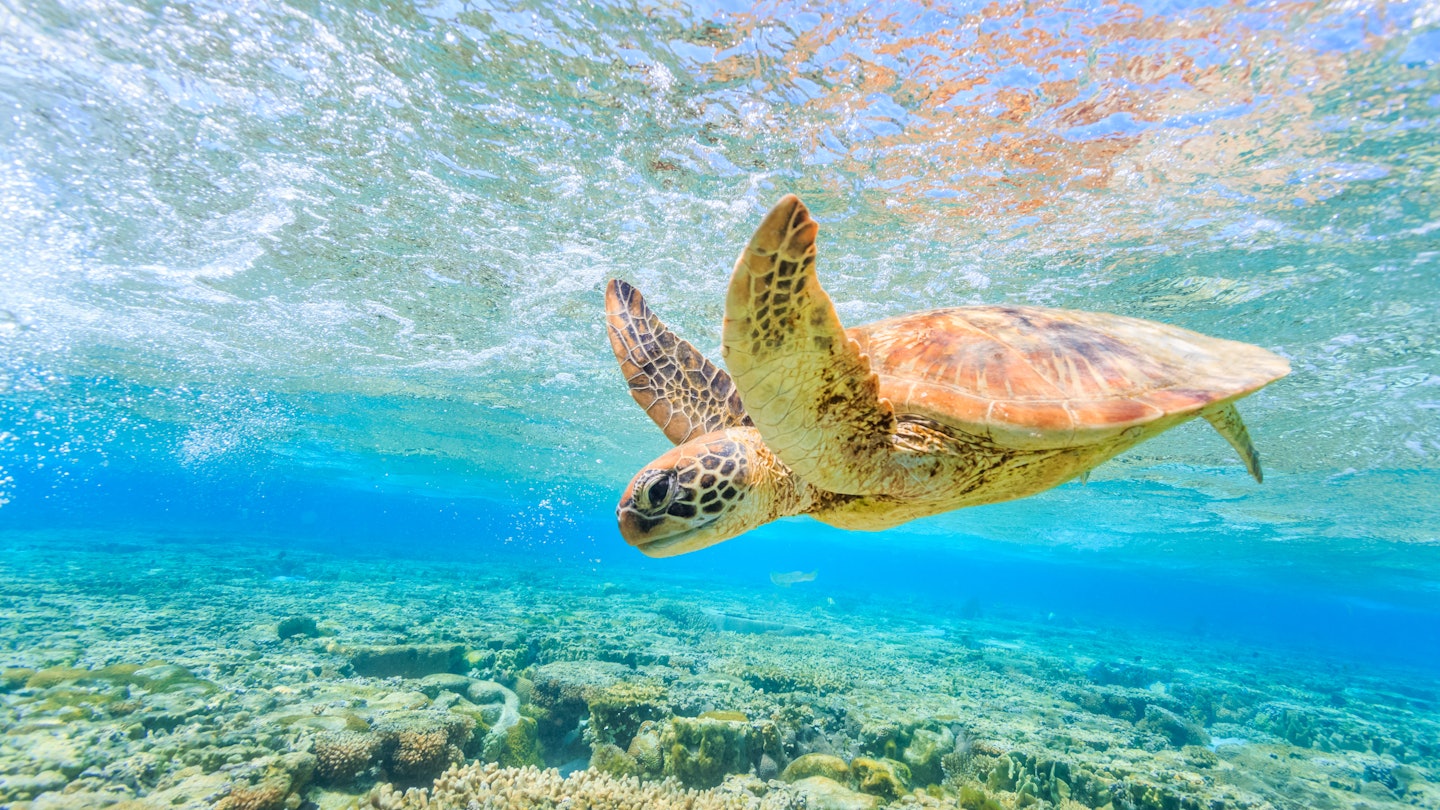
Scientists say drastic action is needed to help mitigate the damage to the Greet Barrier Reef © Michael Smith ITWP / Shutterstock
A new study of one of the most unique and important habitats on our planet – the Great Barrier Reef in Australia – has shown that it has lost half of its corals as a result of climate change. Conducted by the ARC Center of Excellence for Coral Reef Studies in Queensland, Australia, the study showed that populations of its small, medium and large corals have all declined in the past three decades.
Lead author Dr Andy Dietzel said that science has been lacking thorough information and studies on the changes in coral populations over time, something that the study tried to address. Together with a team of co-authors, he assessed coral communities and their colony size along the length of the Great Barrier Reef between 1995 and 2017, with the results showing a depletion of populations.
“We found the number of small, medium and large corals has declined by more than 50 percent since the 1990s,” said co-author Professor Terry Hughes, also from CoralCoE. “The decline occurred in both shallow and deeper water, and across virtually all species—but especially in branching and table-shaped corals. These were the worst affected by record-breaking temperatures that triggered mass bleaching in 2016 and 2017”. Coral bleaching is a result of corals being stressed due to changes in light, temperature and nutrients, a process that leads them to expel symbiotic algae in their tissue and become vulnerable.

Branching and table-shaped corals provide the structures important for reef inhabitants. Coral loss results in a direct loss of habitat, which in turn diminishes fish abundance and the productivity of coral reef fisheries. One of the major implications of coral size is its effect on survival and breeding, with the reef’s recovery being compromised because there are fewer baby corals and few large breeding adults. Climate change is increasing the frequency of reef disturbances such as marine heatwaves, with the southern part of the reef being exposed to record-breaking temperatures in early 2020.
“We used to think the Great Barrier Reef is protected by its sheer size—but our results show that even the world’s largest and relatively well-protected reef system is increasingly compromised and in decline,” Professor Hughes said.
The authors of the study also said that better data on the demographic trends of corals is urgently needed in order to figure out the rate and possibility of recovery between disturbances, as well as taking major steps to address climate change right now. “There is no time to lose—we must sharply decrease greenhouse gas emissions ASAP,” they said.
Read more:
6 bucket list destinations at risk of disappearing due to climate change
Australia and New Zealand's travel bubble opens to emotional scenes
How to visit Hawaii on a budget




